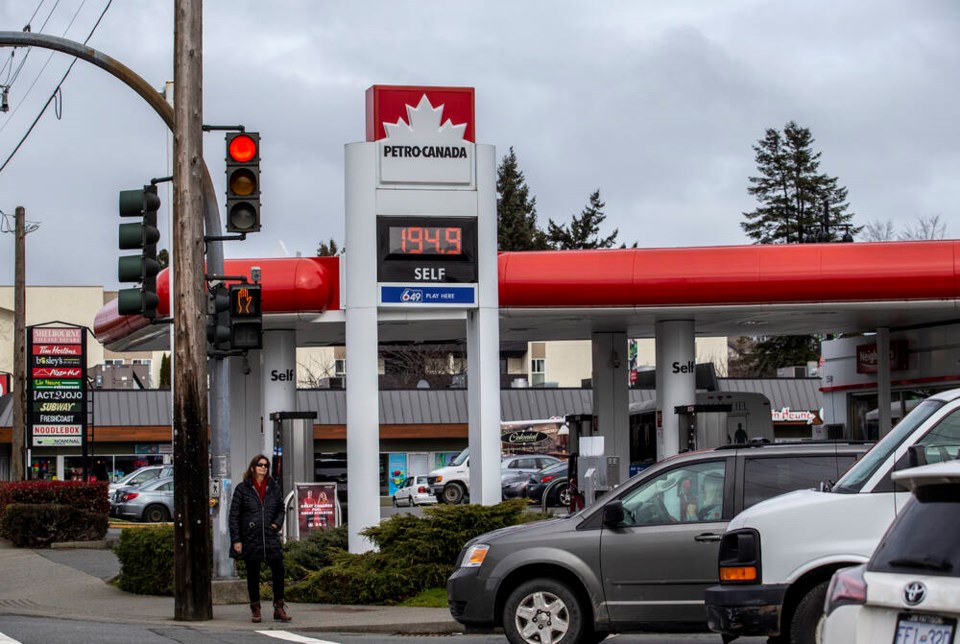Greater Victoria motorists received a shock Wednesday when gas prices jumped to a record high of $1.949 for a litre of regular gas, and a University of B.C. analyst says more increases are likely on the horizon.
Prior to the hike, gas was selling for $1.769 a litre at most stations in the capital region, after reaching $1.799 a litre in mid-February.
Werner Antweiler, an associate professor at UBC’s Sauder School of Business who specializes in international trade and finance, gas prices, energy systems and climate-change economics, said prices will likely soon top $2 a litre — which has already happened for premium gasoline.
Antweiler said it’s difficult to say where gas prices will go in the longer run without knowing what will happen internationally. “But what I can say for sure is we are going to have a lot of price volatility.”
Russia is a major supplier of crude oil globally, but many companies transporting and buying oil do not want to touch that output because of risks it will be subject to sanctions, Antweiler said.
The market is looking for additional supply to make up for the loss of Russian oil, he said.
In a meeting Wednesday, OPEC, which includes Russia, did not agree to increase production beyond what was already planned. “However, I don’t think that’s going to last,” Antweiler said. “Because pressure on Saudi Arabia and the United Arab Emirates is going to be very, very profound coming from the United States to increase production.
“Because even more so than in Canada, Americans are worried about gas prices.”
He expects that producers will ratchet up their output to help meet the shortfall.
The International Energy Agency announced that its member countries will release 60 million barrels of oil, but Antweiler said that is not even one day’s worth of what is normally supplied. “We are talking very, very large numbers. The world still runs on fossil fuels.”
Another potential source is Iran, which remains under sanctions related to its nuclear program. If those are lifted, that would bring more oil into the marketplace, he said.
As for what’s happening at the pumps, Antweiler pointed to electric cars, saying for every kilometre driven, it costs one-quarter of the cost of paying for gasoline.
“That’s something people should keep in mind when they look at buying an electric car. It’s maybe a little bit more costly upfront, but it will save you money down the road.”
Dan McTeague, president of Canadians for Affordable Energy, is calling on B.C. and other governments to back away from carbon taxes to ease prices at the pumps.
Canada is heading into an energy crisis at a level that hasn’t been seen in recent memory and it will fuel inflation, McTeague said.



